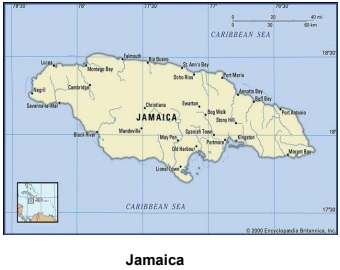The COVID-19 Island Insights Series is an initiative led by the Strathclyde Centre for Environmental Law & Governance (SCELG) and the Institute of Island Studies (IIS) at the University of Prince Edward Island (UPEI) in collaboration with Island Innovation. The series aims to bring together critical assessments of how specific islands around the world have performed during the COVID-19 pandemic and the extent to which their recovery plans are able to promote long term resilience and sustainability.
Every two weeks, Island Innovation will release COVID-19 Island Insights Series from two different islands. This week we are focusing on Jamaica and Barbados. The piece on Jamaica is authored by Suzana N. Russell and the piece on Barbados by Stacey Alvarez de la Campa.
Both of these heavily tourism-reliant Caribbean island nations have suffered surges in unemployment as a result of the pandemic, with significant social and economic impacts. In Jamaica, a study conducted by UNICEF and the Caribbean Policy Research Institute has shown a widespread loss of financial and food security of families as a result, as well as negative impacts on the education and wellbeing of children caused by school closures. On both islands, this has been exacerbated in some cases by digital connectivity issues.
Looking towards their recoveries, both countries recognise an inevitable need to rely on their tourism industries to reinvigorate their economies. But in doing so, there is a simultaneous awareness of and appreciation for the need to transform these industries by shifting away from traditional tourism models and towards more resilient, equitable and sustainable practices.
In Jamaica, policies are being considered that aim to strengthen local supply chains and bring the benefits of tourism to rural communities. Meanwhile, in Barbados, local farmers have benefitted from increased reliance on local rather than imported produce, marketing to ‘staycationers’ has provided additional revenue streams for hospitality businesses and the country is one of a number of island nations to establish a long-stay visa program to attract digital nomad workers.
The COVID-19 Island Insights Series will lead to a series of “thematic primers” aimed at assisting policy makers and wider island related stakeholders to encourage islands to move to a more resilient and sustainable future.
List of islands covered by the COVID-19 Island Insights Series (list subject to change):
- Åland Islands (Finland)
- Barbados
- Croatian Islands
- Egadi Islands (Italy)
- Grenada
- Guam (USA)
- Hawai’i (USA)
- Iceland
- Jamaica
- Lesvos (Greece)
- Malta
- Mauritius
- New Zealand
- Newfoundland (Canada)
- Okinawa (Japan)
- Prince Edward Island (Canada)
- Saint Helena (UK)
- Seychelles
- Shetland Islands, Scotland (UK)
- Solomon Islands
- Trinidad & Tobago
Click here to view the Strathclyde Centre for Environmental Law & Governance (SCELG) website.
Click here to view the University of Prince Edward Island (UPEI) website.
Click here to view the University of Strathclyde website.

Island Innovation is a social enterprise and digital media company at the intersection of sustainable development and communications, offering specialised services across various sectors. We bring together the private sector, government, utilities, NGOs and universities to advance innovation for sustainability and prosperity in islands worldwide.



















